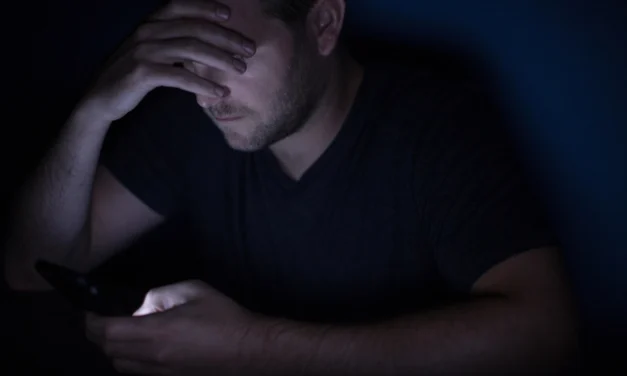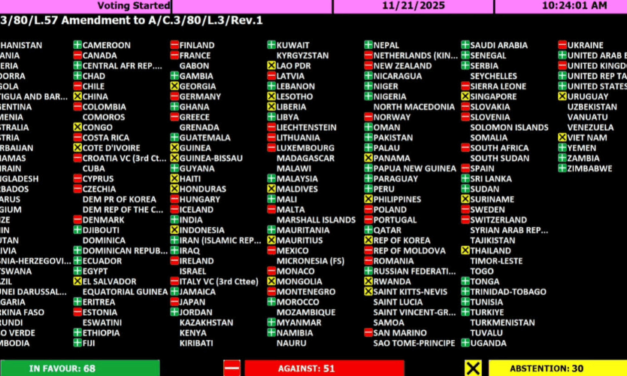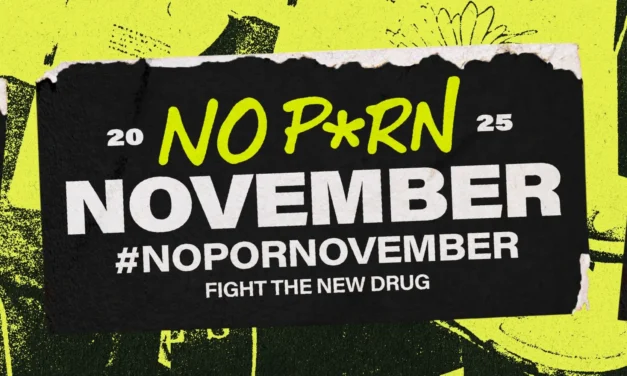Category: Pornography
The Problem of Online Porn: It’s Already Illegal
United States Supreme Court Justice Potter Stewart famously said in a 1964 opinion that he could not define pornography but “I know it when I see it.” Perhaps such a sentiment was permissible then, when pornography was mostly still photos of naked women or graphic descriptions of sex in novels or comic books.
Read MoreUnited States Wins UN Battle on Child Pornography
The United States secured a significant victory in the UN General Assembly’s Third Committee on November 21, 2025, with 68 nations supporting a U.S.-proposed amendment to a resolution on technical cooperation against organized crime. The amendment mandates that UN programs combat child pornography, including virtual forms and sexting, in alignment with international law.
Read MoreBREAKING: US Wins UN Vote to Combat Child P*rn
The U.S. won a key vote against child pornography and pedophilia in the General Assembly’s Third Committee today. Sixty-eight nations sided with the United States and against the European Union in insisting that all forms of child pornography, including virtual child pornography and sexting must be prosecuted. The Trump administration said this was in line with an international treaty against child pornography launched by the U.S. government over thirty years ago.
Read MoreThey Laughed at the Name. Now, Millions Around the World Know It.
Early on, when Fight the New Drug was barely an idea—before the videos, before the website, before millions of Fighters around the world—I sat in a meeting that almost changed everything. Back then, we were just a few young creative entrepreneurs with conviction and a dream. No track record. No funding. No proof anyone would care. Just a belief that connection, real love, and a world without the harmful impacts of porn were worth fighting for.
Read MoreNew U.N. Treaty Decriminalizes AI Child Sexual Abuse Images
A new United Nations treaty against cybercrime expressly allows for child sexting and the production and dissemination of virtual child pornography. The new treaty will normalize pedophilia and turbocharge pedophilic sexual content online via artificial intelligence and sexbots.
Read MoreBoys Are Now Caught Under The Spell Of Predatory Algorithms
As Americans, we like to think our boys are tough and resilient. But online, they’re the most vulnerable — and the most overlooked.
Read MoreRescuing Your Marriage from Pornography
Many women are suffering because their husband uses pornography. They feel isolated, ashamed, hopeless, and helpless. They’ve tried everything they can think of to fight for their marriage – like being more sexual with him; being more patient, forgiving, or gracious; or creating a more loving environment – all to no avail.
Read MorePope Leo XIV Warns Against Dangers of Pornography and Internet Addiction
Pope Leo XIV issued a stark warning about emerging forms of addiction during his weekly Angelus address in St. Peter’s Square on November 10, 2025, highlighting pornography and excessive internet use as grave threats to human dignity and spiritual health.
Read MoreThe Chatbot Diaries: How AI Sex Is Getting Mainstreamed
The OpenAI CEO announced on social media on October 14 that his company was working to make ChatGPT less restrictive in what types of conversations adults can have with the chatbot. That development would allow users to engage in more realistic conversations with the chatbot and would make ChatGPT “respond in a very human-like way…or act like a friend,” Altman said. But then Altman added that he wanted to loosen restrictions to allow more sexual content.
Read MoreThe Deepfake Deluge is Coming, and Kids Are a Major Target
Acquiring deepfakes is getting easier, even for the less technically savvy. Websites like Civitai, backed by a16z, allow users to place “bounties” for the creation of AI-generated videos, frequently pornographic videos of real women, including persons without serious public presence, according to 404 Media. Online marketplaces for deepfake pornography, which can target anyone with just a photo, are a click away.
Read MoreThe Era of AI Porn Is Here
Sam Altman, the CEO of ChatGPT-owner OpenAI, recently announced that his software would soon allow users to generate erotic content. On X, Altman posted: “In December, as we roll out age-gating more fully and as part of our ‘treat adult users like adults’ principle, we will allow even more, like erotica for verified adults.” Some users on X criticized this decision, and Altman doubled down. “You won’t get it unless you ask for it,” he said to one such critic.
Read MoreYour 2025 No Porn November Essential Guide
This No Porn November, Fight the New Drug invites you to take a stand. Give up porn for 30 days with the support of research-backed resources, personal challenges, and a global community.
Read More












